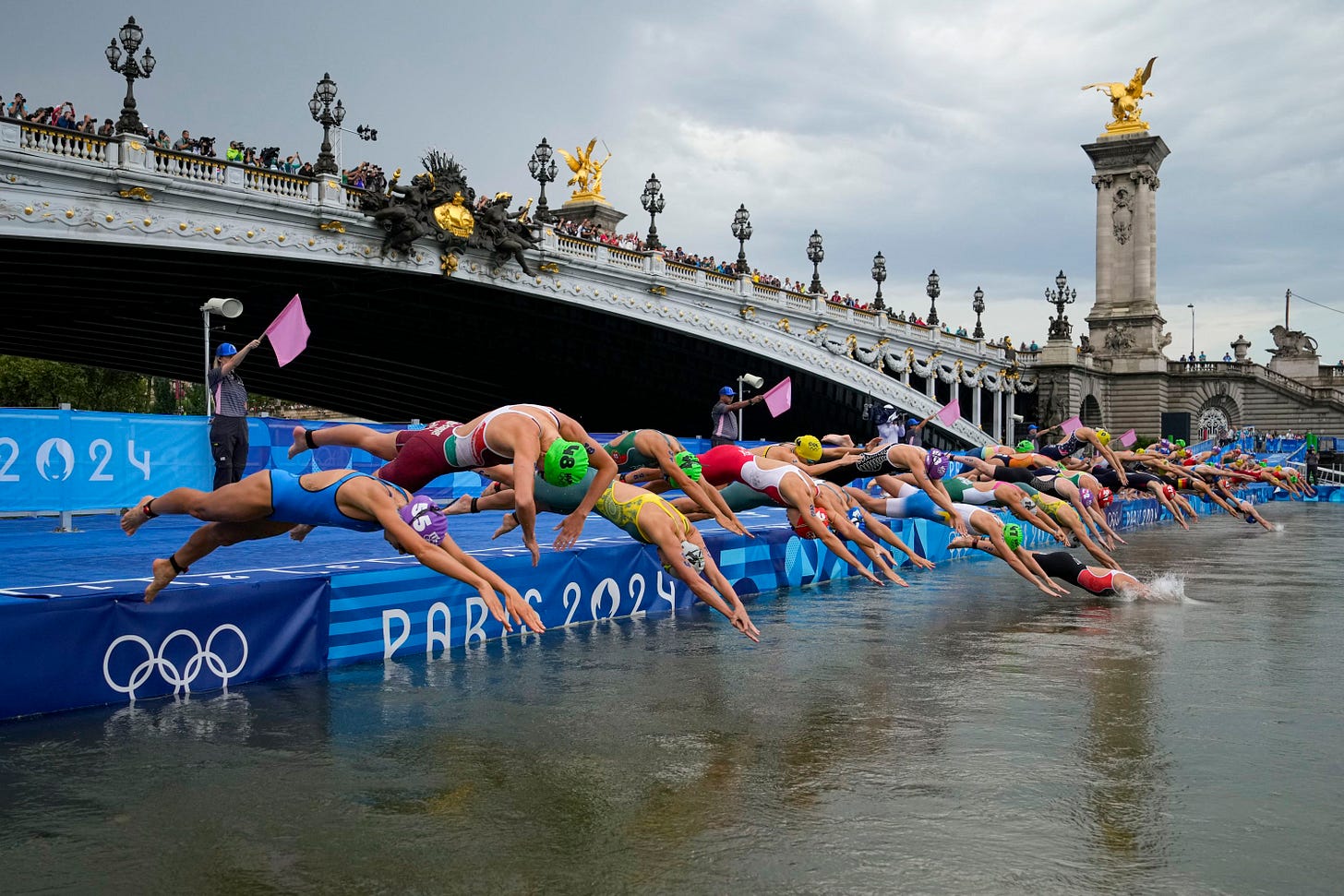The Sporting Paradox of Paris 2024
By guest writer-historian Lindsay Sarah Krasnoff
Given the performance of French athletes at Paris 2024 thus far, you might assume sports play a massive role in French society. Not exactly, says Lindsay Sarah Krasnoff, the historian, author of Basketball Empire: France and the Making of a Global NBA and WNBA (Bloomsbury) and Director of FranceAndUS. She joined me on The New Paris Podcast last summer to talk about the NBA drafting French basketball wunderkind Victor Wembanyama and sports diplomacy. Today, she lands in your inbox with commentary on the Paris Olympics and how sports factor into local culture.
Love them or loathe them, the Paris 2024 Games are finally here.
The city’s choicest landmarks are decked out in their sporty best. Since May, I’ve watched temporary stadia take over the views at Trocadero, Place de la Concorde, along the Champs de Mars, and more while the Olympic rings now grace the Eiffel Tower.1
I’ve also gotten daily doses of the Games through all forms of multimedia. Much of this comes from my work on French sport and sports diplomacy, so of course my social media feeds are oversaturated. But it’s also pervasive in other ways as news segments have gone from breathlessly covering the city’s preparations, Parisians’ trepidations, and the Olympic flame’s trajectory, to the different sports-related human-interest stories. Then there are the wide range of advertisements and memorabilia that maintain a constant barrage of Paris 2024 messaging. Even La Poste is in on the action, with a special commemorative set of stamps.
The Games are omnipresent among the city’s cultural milieux, too. Nearly every museum or cultural institution has a sports-themed exhibit this summer, including six sculptures by Laurent Perbos representing different Olympic disciplines outside the Assemblée Nationale. I highly recommend the Olympisme exposition at the Palais de la Porte Dorée for how it situates the Games into a global historical context; it’s not a white-washed version but one that denotes the legacies of imperialism, colonialism, racism, and misogyny. There was even a recent assist from the Vogue World’s recent sports-meets-fashion tribute at Place Vendôme, which signaled that some of the country’s top taste-makers are ready to delve into and support the sporting scene.
Given the difficulty of escaping the Paris Games, you might think that this is inherently a sports culture.
But that’s just window dressing.
One of the things I’m most fascinated by in my work on French sports, whether from the historical angle or from a present-day global sports-and-diplomacy perspective, is the paradox of sports in the hexagone.





